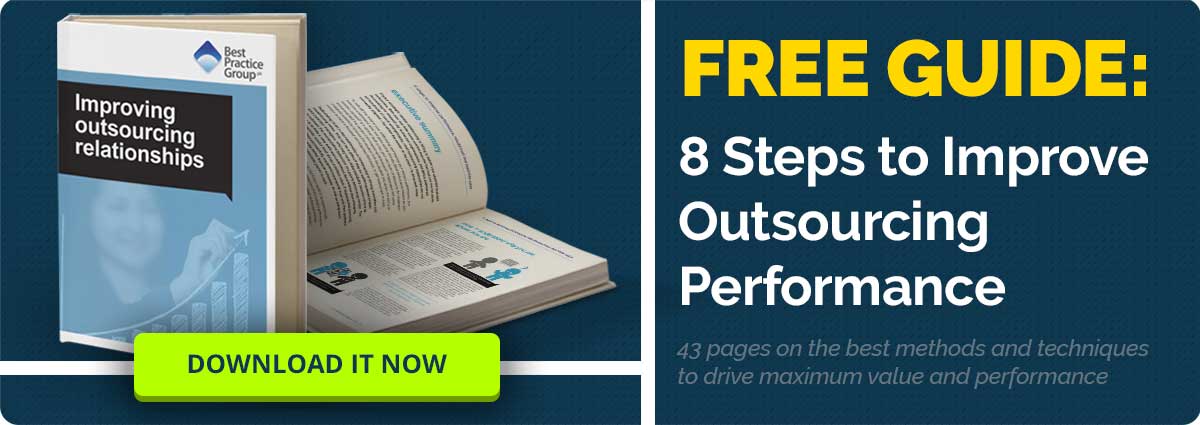 Many public sector projects and service delivery relationships have the potential to be lucrative undertakings for both strategic suppliers and their clients if approached in the right way. However, the popularity of such contracts also has a tendency to attract the ‘yes-man’ from some suppliers. And, while it may be beneficial for the client in the short term to have all its requests agreed to with little critical friend challenge from the supplier, the medium to long-term result can often be damaging. It can even, in some circumstances, be fatal to the project’s prospects of driving maximum value in the business outcomes that clients want to achieve from their strategic partners.
Many public sector projects and service delivery relationships have the potential to be lucrative undertakings for both strategic suppliers and their clients if approached in the right way. However, the popularity of such contracts also has a tendency to attract the ‘yes-man’ from some suppliers. And, while it may be beneficial for the client in the short term to have all its requests agreed to with little critical friend challenge from the supplier, the medium to long-term result can often be damaging. It can even, in some circumstances, be fatal to the project’s prospects of driving maximum value in the business outcomes that clients want to achieve from their strategic partners.
In recognition of the public sector’s need to get the best from its suppliers – to tap into the expertise these organisations possess to gain best outcome prospects and to require a ‘critical friend’ challenge should any area of the contract or relationship be, or become, unfit for purpose – the government has released a new Strategic Supplier Code of Conduct.
As the code states: ‘Civil servants are all subject to the Civil Service Code and the Seven Principles of Public Life, which define the values that we espouse and the behaviours required of us. This Supplier Code of Conduct sets out the matching behaviours that we expect of suppliers who are delivering services on behalf of government.’
Key among these are the need for a strategic supplier to exercise the expertise it was selected for, to determine the viability of projects, processes and methods as expressed by its public-sector clients, and to speak up when things could be improved upon, or to steer a project away from any ill-advised course of action. The goal is to ensure that on every project the public will get value for money, projects with increased chances of success, and to reduce opportunities for misunderstandings and ultimately, disputes.
We have recently written a series of articles on this subject, titled 8 core elements to assess whether you are dealing with an ‘Intelligent Supplier’. Our focus was on the primary areas that any strategic supplier a client chooses to work with should excel in, or at least be able to evidence a high level of competence in, to demonstrate themselves as an ideal collaborative partner. They contain the key lessons we’ve learned from dealing with over 500 strategic service delivery relationships. The ‘Intelligent Supplier’ series is summarised at the end of this article.
Within an article on the CIPS (Chartered Institute of Procurement & Supply) website, Gareth Rhys Williams, the Government Chief Commercial Officer, is quoted as saying: “Government relies on its suppliers for the delivery of many important public services, for assistance in delivering policy and for the construction of public assets. While underpinned by a contractual relationship this reliance needs to be based on a bond of trust. Taxpayers expect that government’s suppliers will look after their interests and deliver on the promises that they make. They expect that suppliers will behave ethically and treat their service users, employees and subcontractors fairly and with respect.”
And to achieve these results, the new Strategic Supplier Code of Conduct sets out a number of expectations that include ‘fairness’, ‘equality’, ‘professionalism’, to act ‘in a manner that is compatible with public service values’, ‘upholds the reputation of government’ and is ‘focused on delivering for the public’.
The code is split into three main areas:
- Employees and Service Users
- Business Practices
- Standards of Behaviour.
These in turn are subdivided into numerous responsibilities and aspirations that include the way the public sector would expect strategic suppliers to treat it and its employees, and that suppliers should speak out when its client’s employees do not live up to their own code of conduct. The code talks of the responsibilities of a commitment to delivering best value for the UK taxpayer as well as risk, cybersecurity, confidentiality, knowledge transfer and innovation throughout the life cycle of a relationship. It also mentions expectations in terms of standards of ethics, compliance with the letter and spirit of the law, honesty and social responsibility, to name but a few of the areas touched on.
Alongside these expectations comes the promise that speaking out in a way that benefits the project and its prospects can be done ‘without fear of consequences’.
Such a governance process will have some suppliers scratching their heads and others wondering why this needs to be set in such formal form as it’s exactly the standards they are already applying within every relationship they enter. Personally, I think it’s always best to create a clear and unambiguous framework for new relationships to follow and test their compliance against. That way everyone knows what’s expected of them and intangibles such as balance and fairness can be independently assessed by both sides from the outset.
The code’s conclusion sets out its objective: ‘to drive improved performance throughout government supply chains, by building trusting and open relationships with our supply base.’
Our ‘Intelligent Supplier’ series of articles outlines the 8 Key Elements in which a client can establish whether the strategic supplier they are considering, or that they are already in a relationship with, is a true partner. It’s also a useful guide for any supplier considering public sector contracts, as being able to evidence these eight features will speak volumes about your willingness to comply with the new Supplier Code of Conduct:
1. Understanding, Supporting (and Challenging) the Client’s Business and Operating Strategy
Shrinking violets need not apply. A true strategic partner is one that challenges its client where it recognises, and can back up claims with evidence, that service delivery can be implemented better, more efficiently and with better outcomes. Clients have a responsibility to seriously consider such critique and recommendations with an open mind and to nurture such collaborative thinking.
2. Supporting the Client’s (often changing) Business Objectives
Flexibility is key. A true partner is one that can adapt to the changing needs of the relationship and the changing objectives of its client, within reason of course. Many public-sector relationships last for decades, therefore, there is plenty of time for evolutions, advances and end-user expectations to shift or occur. A quality partner is one that will flex without breaking.
3. Evidencing ‘Commercial Trust’
Trust is hard-won, but easily lost. Proof and maintenance of the illusive commodity of trust is vital for any successful partnership. There are many ways in which client and supplier can evidence their commitment to earning and being worthy of each other’s trust, but it’s the ability to evidence this that is most important.
4. Constructive Critical Friend
Knowing when to say ‘no’, when to speak up. This is the essence of the government’s new Strategic Supplier Code of Conduct. For a supplier to be a true partner it needs to appreciate that its expertise is valued and will be listened to without fear of adverse consequences. Then it needs to bring the full force of its specialist knowledge to bear in assessing client plans to determine viability, suitability and whether there are better ways of driving maximum value in the relationship.
5. Managing the Innovation Process
Ideas are easy, implementation is the challenge. A true partner is one that allocates the resources needed to develop new ways of approaching old issues, evidences the concepts to its client, and collaborates with them to make them a reality for the benefit of the project.
6. Aligning Your Contract Terms to Changing Circumstances
Periodic review to maintain relevance of a project’s strategy. Collaborative working is always enhanced by a closer understanding of the goals and objectives of a relationship, the resources required to achieve them and the place on the timeline that you currently are at. A biannual review of the contract, progress, and expectations will achieve this, along with the open-mindedness required to adapt to the changing needs of the project and the realities of the operating environment.
7. Client Engagement Function
Communication comes first, last and always. A true strategic supplier partner is one that collaborates with its client; that shares its issues, questions its client’s logic where necessary and maintains a free exchange for the good of project alignment and business outcomes.
8. Service Area Domain Expertise
Show, don’t simply tell. A true partner is one that recognises the importance of evidencing its ability to act as an ‘intelligent supplier’ through demonstrating how it has solved specific issues, innovated identified solutions and risen to challenges for other clients.
Conclusion
The UK government’s new Strategic Supplier Code of Conduct is a list of requirements that suppliers aiming to make themselves more attractive to public-sector clients would be advised to consistently follow. Most important is the ability to evidence this compliance in order to win those valuable contracts and prove the delivery of best value to clients. If you are responsible for any aspect of a client-side relationship, the ‘8 Key Elements’ to determining whether your supplier is an ‘intelligent supplier’ listed above will help you measure their commitment to your project partnership. It will also go some way to evidencing your supplier’s compliance with the new code of conduct.
Photo credit: Shutterstock


